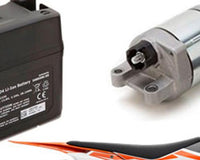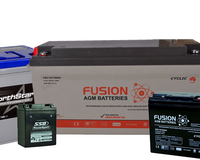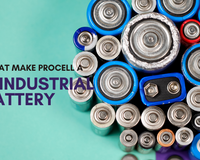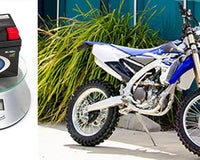With a permanent, free source of energy hanging over our heads every day, it's not hard to see why more and more people are using solar panels to harvest it.
But the big issue with solar is storage. We have covered solar storage in a previous post. But this post aims to show you the types of batteries that are best suited to the job. If you have an off-grid home, you'll need a good battery.
AGM - Suitable
AGM batteries are known for being maintenance-free, energy-dense and deep cycle capabilities. They are often used in heavy-duty activities such as cars, RVs, trucks, and marine applications. As they are maintenance-free, you can install it and never have to worry about it again.
As AGM batteries are designed to be deeply discharged, they are well suited to renewable energy storage systems.
Flooded (Wet Cell) - Not Suitable
Flooded batteries are batteries that are unsealed and require ventilation. They also require you to check on the water and care for them at certain intervals. As they are unsealed, they do pose a risk of leaks and spillage, but this issue is not likely to occur in a solar storage unit that remains in one position 24/7.
These are one of the least expensive options listed here.
However, the maintenance aspect of this battery is what makes it a bad choice for renewable energy storage. Since you, the user will have to maintain it periodically, which can be an inconvenience when there are 100% maintenance-free options on the market.
Gel Batteries - Not Suitable
These fully sealed batteries use a gelled electrolyte to make the cells more sturdy. The low maintenance aspect of Gel Batteries makes them an appealing option for a solar storage system, but they also have many downsides. They are at more risk of damage due to their low charging voltage, so the charging voltage needs to be kept to a precise range.
These issues alone make Gel Batteries unsuitable for solar storage.
Lithium-Ion - Suitable
Lithium-Ion batteries are possibly the most commonly used batteries these days, and with good reason. Lithium-Ion batteries are designed to be deeply discharged for long periods of time, and thanks to their cycle life, you can charge/discharge them hundreds of times over.
The most well-known Lithium-Ion solar battery is Tesla's Powerwall. Other brands have also produced cheaper lithium-ion batteries.
Lithium Iron Phosphate - Suitable
Lithium Iron Phosphate ( LifePO4 ) batteries are also well suited to solar energy systems. While not as common, this option is still a good one as LifePO4 chemistry prefers partial charge and partial discharge. This means the risk of undercharging these batteries is reduced.









